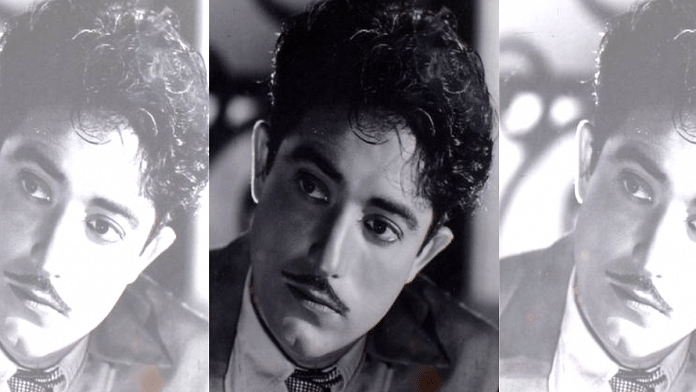The year was 1952. A 25-year-old rugged-looking man, who had left his job as a sub-inspector at Mahim Police Station in Mumbai (then Bombay), was now awaiting the release of his first-ever Hindi feature film—Rangeeli. Directed by Najam Naqvi, it starred a young Raaj Kumar and was received with silence at the box office.
Ditching a stable career in the police force and investing all hopes and expectations in a new, glitzy world of the Hindi film industry was not a premeditated plan on Raaj Kumar’s part. Born Kulbhushan Pandit in Loralai, Balochistan in a Kashmiri Pandit family, Raaj Kumar was nudged into the world of cinema by his friends and peers who found him to be good-looking enough to qualify as a ‘hero.’
But it was not until 1957, when he landed the role of an on-screen prince in Sohrab Modi’s Nausherwan-e-Adil, that the proverbial ‘prince’ of the Hindi film industry was born. Then came Mother India in the same year with his brief yet impactful role as Nargis’ husband, he cemented his position in the industry. The film went on to gain recognition and massive fame with an Oscar nomination.
Also read: ‘My name is Prem, Prem Chopra’—India’s favourite villain is more than a Bollywood bad boy
Playing by his own rules
“Hum tumhe maarenge, aur zarur maarenge… lekin woh bandook bhi hamari hogi, goli bhi hamari hogi aur waqt bhi hamara hoga”
This dialogue (from the 1981 film Bulandi) encapsulates the spirit and attitude of the yesteryear actor. Despite not hailing from a film family, he always played by his own rules.
His fellow actor Danny Denzongpa, with whom he shared screens in multiple films, described him as “someone full of himself,” which luckily worked in his favour. In fact, filmmaker Subhash Ghai recalls having to do a “lot of ego massage” during the making of Saudagar (1991), starring another stalwart of Indian cinema, Dilip Kumar.
From an underwhelming debut to a career comprising 70 films with cinematic gems like Waqt (1965), Hamraaz (1967), Heer Raanjha (1970), Lal Patthar (1971), Pakeezah (1972)—Raaj Kumar established himself as an actor, who also happened to be a superstar.
For many, Raaj Kumar, and impeccable dialogue delivery and style statement were synonymous. His catchphrase “Jaani” and white shoes (first featured in the 1965 film Waqt) evolved to be an extension of his personality. Regardless of whether the shoes were needed for a certain character on screen, he insisted on wearing them in every shot.
“Aapke paon dekhe, bahut haseen hai … inhe zameen par mat utaariega … mailay ho jayenge” — this immortal dialogue delivered by Raaj Kumar in the Kamal Amrohi-directed classic, Pakeezah (1972) has a fandom of its own. Even his on-screen pairing with Meena Kumari, to date, is considered to be one of the best-remembered romantic pair of the Hindi film industry.
Also read: Her lips painted red, ghazal queen Begum Akhtar sang with a ‘pain in her voice’
Man of discipline
Owing to his experience of working in a police force, he was thoroughly disciplined and ever-evolving. Denzongpa recounts, working with Raaj Kumar was a dream for any discipline-loving actor, as the latter would rarely work beyond the ‘normal’ working hours. When success played hide and seek in the late 1970s and early 1980s, he shifted gears to playing the supporting actor in films like Kudrat (1981), Jung Baaz (1989), Ek Nai Paheli (1984), and Muqaddar ka Faisla (1987).
Raaj Kumar won his first acting award (Filmfare for ‘Best Supporting Actor’) for his role as a cancer patient in Dil Ek Mandir (1963) — a remake of the Tamil film Nenjil Ore Alayam. Ironically enough, he passed away on 3 July 1996 in Bombay after battling throat cancer for two years.
His peers from the film industry swear by his fiercely independent spirit. So much so that when Subhash Ghai visited the veteran actor while he was sick, the latter said, “Raaj Kumar ko bimaari hogi toh badi hogi na, koi zukaam se thodi na marega Raaj Kumar.” He lived a grand king-sized life up till his very last breath.
(Edited by Ratan Priya)



